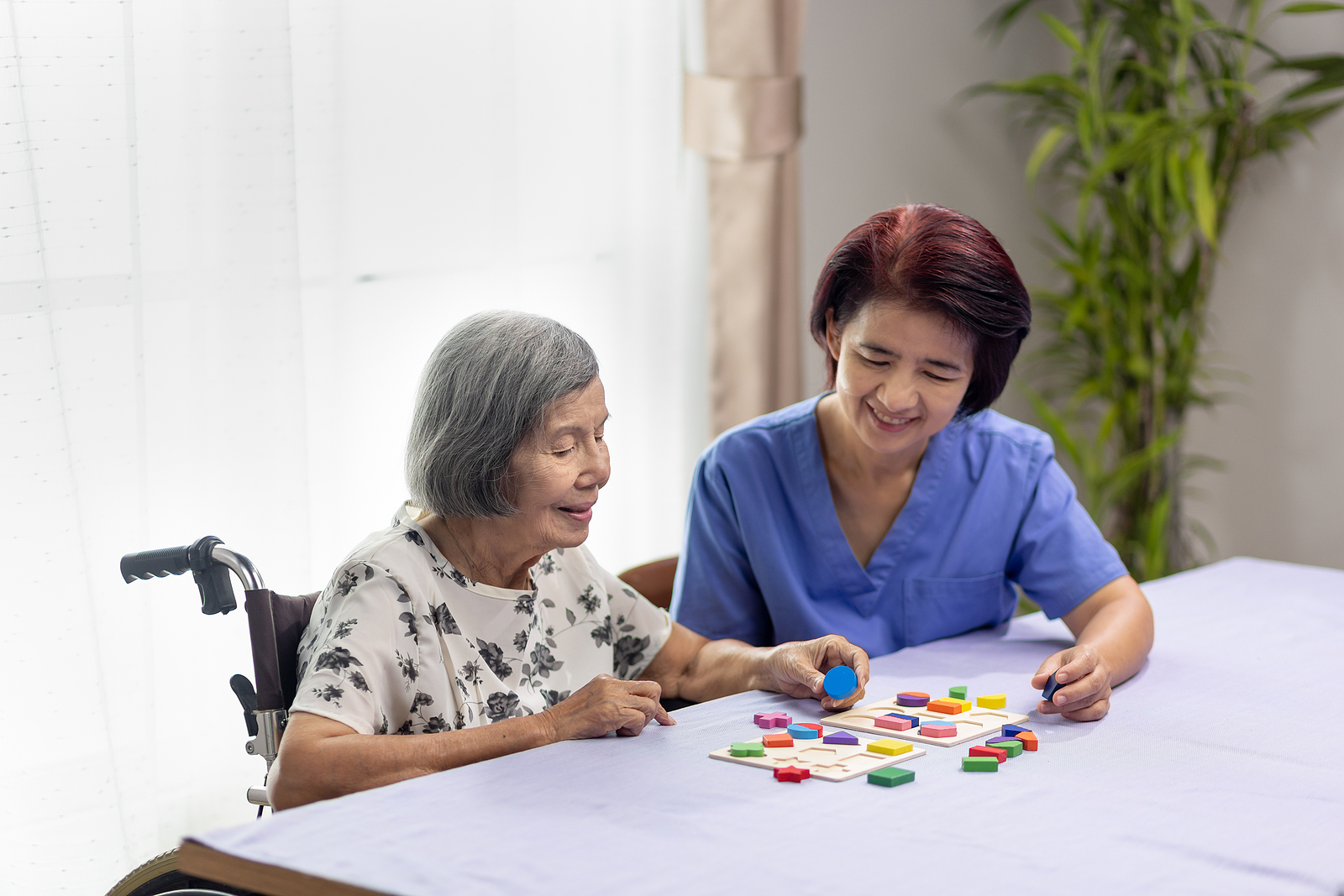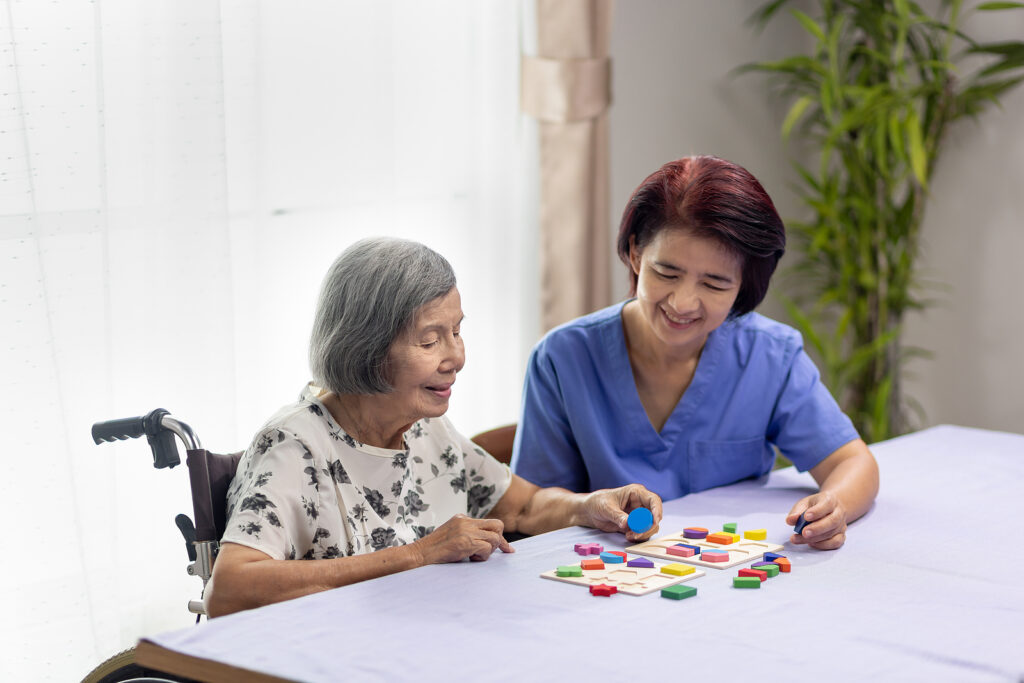
Memory becomes increasingly important with age, as issues with memory might reduce seniors’ freedom and standard of living. For seniors, understanding memory—especially implicit and explicit memory—and how it impacts them can be important. Elder care and loved ones can help them find the resources they need as well as encourage them to talk with their medical team if they have concerns.
Explicit Memory: What Is It?
Explicit memory, also known as declarative memory, is the recall of facts consciously. It falls into two primary categories:
- Episodic Memory: This kind of memory consists of recalling particular experiences and occasions, like birthdays, trips, or breakfast choices. It resembles a mental journal of our existence.
- Semantic Memory: Semantic memory is the term for seniors’ understanding of ideas, facts, and information about the outside world. Examples of this include knowing the name of the president at the moment or the capital of France.
The hippocampus and other brain regions involved in conscious thought processes are essential for explicit memory. Maintaining explicit memory can be difficult for seniors, particularly when dealing with diseases like Alzheimer’s, as it specifically affects this kind of memory.
Implicit Memory: What Is It?
Non-declarative memory, also known as implicit memory, is automatic and unconscious. It facilitates the completion of tasks without conscious thought. It includes the following:
Procedural Memory: Procedural memory refers to the abilities and processes seniors use on a daily basis, like riding a bike, using a keyboard, or preparing a recipe they are familiar with. These are tasks that, once mastered, come naturally.
Priming: Priming is the process by which, even when seniors aren’t aware of it, exposure to one stimulus affects how they react to another. For instance, seniors might be more likely to recognize the word “banana” more quickly if they see the word “yellow.” This is why pictures are often used when seniors struggle with memory.
A variety of brain regions, including the cerebellum and basal ganglia, are necessary for implicit memory. When comparing the two, it’s interesting to note that implicit memory typically holds up better than explicit memory.
What Does This Mean for Seniors?
Understanding the difference between implicit and explicit memory allows seniors and loved ones to gain perspective on how seniors perceive and manage changes in their memory. For instance, seniors may be able to retain procedural skills even if they have trouble with explicit memory. This can explain why they’re able to continue enjoying lifelong hobbies like knitting, gardening, and playing an instrument.
When it comes to daily routines, however, seniors typically rely more on their implicit memory, handling these tasks without conscious thought, especially when consistent routines are established. This idea is used readily with seniors who have been diagnosed with Alzheimer’s, as routines are one of the first things elder care might help them establish.
Activities like puzzles, crafts, and music therapy that encourage procedural memory may also be helpful for improving mental health and providing a happy, fulfilled sense of accomplishment. Additionally, seniors are able to live more independently when their environments minimize the need for explicit memory. This means ensuring things like labels, reminder apps, and clear, short instructions are in place.
With the help of elder care and loved ones, seniors can gain a better understanding of memory and how it impacts their daily lives. They can also become aware of why some tactics work better than others as they work to improve their memory.
Sources:
https://www.prevention.com/health/memory/a61428582/implicit-vs-explicit-memory/
https://www.news-medical.net/health/Implicit-vs-Explicit-Memories.aspx
The staff at Home Care Matters is available to talk with you and your family about all of your needs. Home Care Matters is a home care agency providing quality and affordable elder care in Oakwood, GA, and the surrounding areas. Call (770) 965-4004 for more information.
We provide elder care in Braselton, Buford, Dacula, Duluth, Flowery Branch, Gainesville, Johns Creek, Lawrenceville, Oakwood, Sugar Hill, Suwanee, Barrow County, Forsyth County, Gwinnett County, Hall County, Jackson County, North Fulton County.
Valerie has the unique experience with home care as she has experienced it from both ends of the spectrum, as a caregiver and as needing care herself as a cancer survivor. Valerie says, “Taking care of someone you love is a physically, mentally and demanding labor of love.Taking care of my mom was the hardest thing I have ever done. It has given me an insight and perspective not many people understand unless you are doing it or have done it.I loved taking care of my mom.I love helping others take care of their love ones too.And now that I’ve been sick, it’s given me a whole new level of empathy and understanding for those who are sick and need help.”
Valerie’s schedule varies daily, but she loves visiting with our clients, families, caregivers, our network partners and being in the office.Says Valerie, “Every day is different, but I wake up excited about what we do, inspired by our team, clients and caregivers.I strive to be a resource to the community.I love my team and I love what we do every day. I like to think my mom would be proud.”
You can reach Valerie by email (Valerie@homecarematters.com) or in our office (770.965.4004).
- How In-Home Alzheimer’s Care Helps Your Parent Stay Safe and Comfortable - December 26, 2025
- After the Fall: How Home Care Helps Seniors Recover Safely at Home - December 19, 2025
- Supporting Seniors with Memory Challenges Through Compassionate Senior Home Care - December 12, 2025

